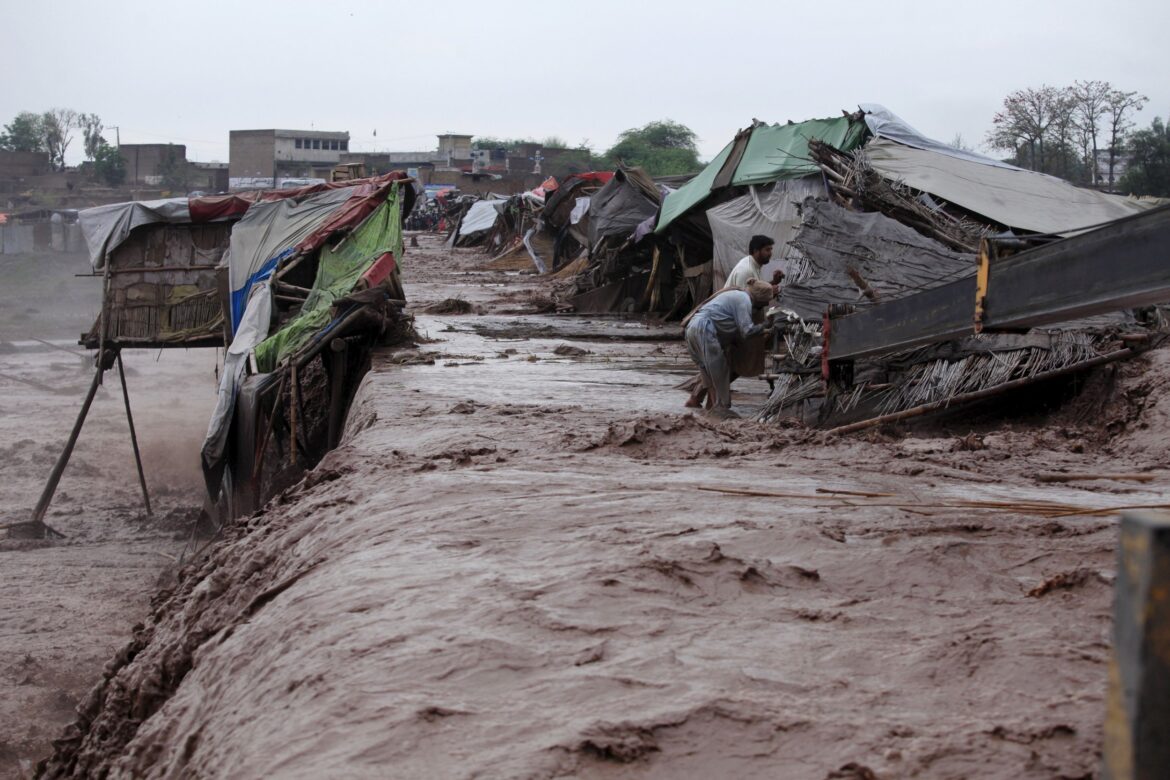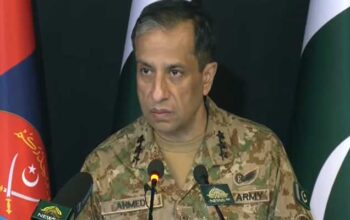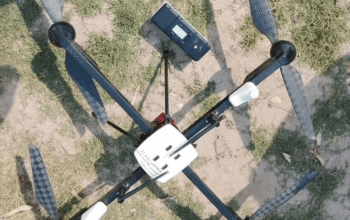Sindh reported the highest number of deaths as 306 people lost their lives due to floods and rain-related incidents from June 14 till Friday, according to NDMA. Balochistan reported 234 deaths whereas Khyber Pakhtunkhwa and Punjab recorded 185 and 165 deaths, respectively. In Kashmir, 37 people were killed while nine deaths were reported in the Gilgit-Baltistan region.
By Staff Reporter
KARACHI: Widespread flooding across the country so far has killed 937 people, including 343 children, and left at least 33 million without shelter and food, forcing the government to declare a state of emergency, officials said.
Since the summer season began, multiple monsoon cycles have lashed Pakistan, destroying more than 400,000 homes across the country.
Southern Pakistan has been hardest hit by the rains – particularly Sindh which has received nearly eight times its average August rainfall.
Sindh reported the highest number of deaths as 306 people lost their lives due to floods and rain-related incidents from June 14 till Friday, according to National Disaster Management Authority (NDMA). Balochistan reported 234 deaths whereas Khyber Pakhtunkhwa and Punjab recorded 185 and 165 deaths, respectively. In Kashmir, 37 people were killed while nine deaths were reported in the Gilgit-Baltistan region during the current monsoon rains.
Pakistan received 166.8 mm of rain in August, as opposed to the average of 48 mm – an increase of 241 percent. Sindh and Balochistan – the worst-hit regions – witnessed a 784 percent and 496 percent increase in the monsoon deluge.
The abnormal increase in rainfall generated flash floods across the country, particularly in the south, which remains inundated at the moment with 23 districts of Sindh declared calamity-hit.
Climate minister Sherry Rehman said the country was going through its eighth monsoon cycle “while normally the country only has three to four rain cycles”. “The percentages of super flood torrents are shocking,” she said. “Pakistan is under an unprecedented monsoon spell and data suggests the possibility of re-emergence of another cycle in September.”
Minister Rehman, who compared the current situation with the devastating 2010 floods, said the current situation was worse than that. “The water is not only flowing from the north as it did in 2010, but it is equally or more devastating in its sweep and destructive power.”
“Almost 30 million people are without shelter, thousands of them displaced and have no food,” she said.
Rehman said a “war room” has been set up by Prime Minister Shehbaz Sharif, which would spearhead relief operations across the country. “The incessant monstrous rainfall had made it hard to carry out relief operations, especially helicopter sorties”.
Stressing the need for relief from international donors, the minister said that the need for shelter and relief was dire as per what the provinces had conveyed.
Sindh has asked for one million tents and Balochistan has demanded 100,000 tents, she said, adding that all tent manufacturers had been mobilised and external donors were also approached for tents.
On Friday, Prime Minister Sharif briefed international diplomats on the crisis, stating that his country — on the frontline of climate change despite a relatively small carbon footprint — must focus its rehabilitation toward greater climate change resilience.
Funding and reconstruction efforts will be a challenge for cash-strapped Pakistan, which has to cut spending to ensure that the International Monetary Fund approves the release of much-needed bailout money.
The NDMA said in a report that in the past 24 hours, 150 kilometers (about 93 miles) of roads had been damaged across the country and more than 82,000 homes partially or fully damaged.
Since mid-June, when the monsoon began, more than 3,000 kilometers (1,864 miles) of road, 130 bridges, and 495,000 homes have been damaged, according to NDMA’s last situation report.
Copyright © 2021 Independent Pakistan | All rights reserved




